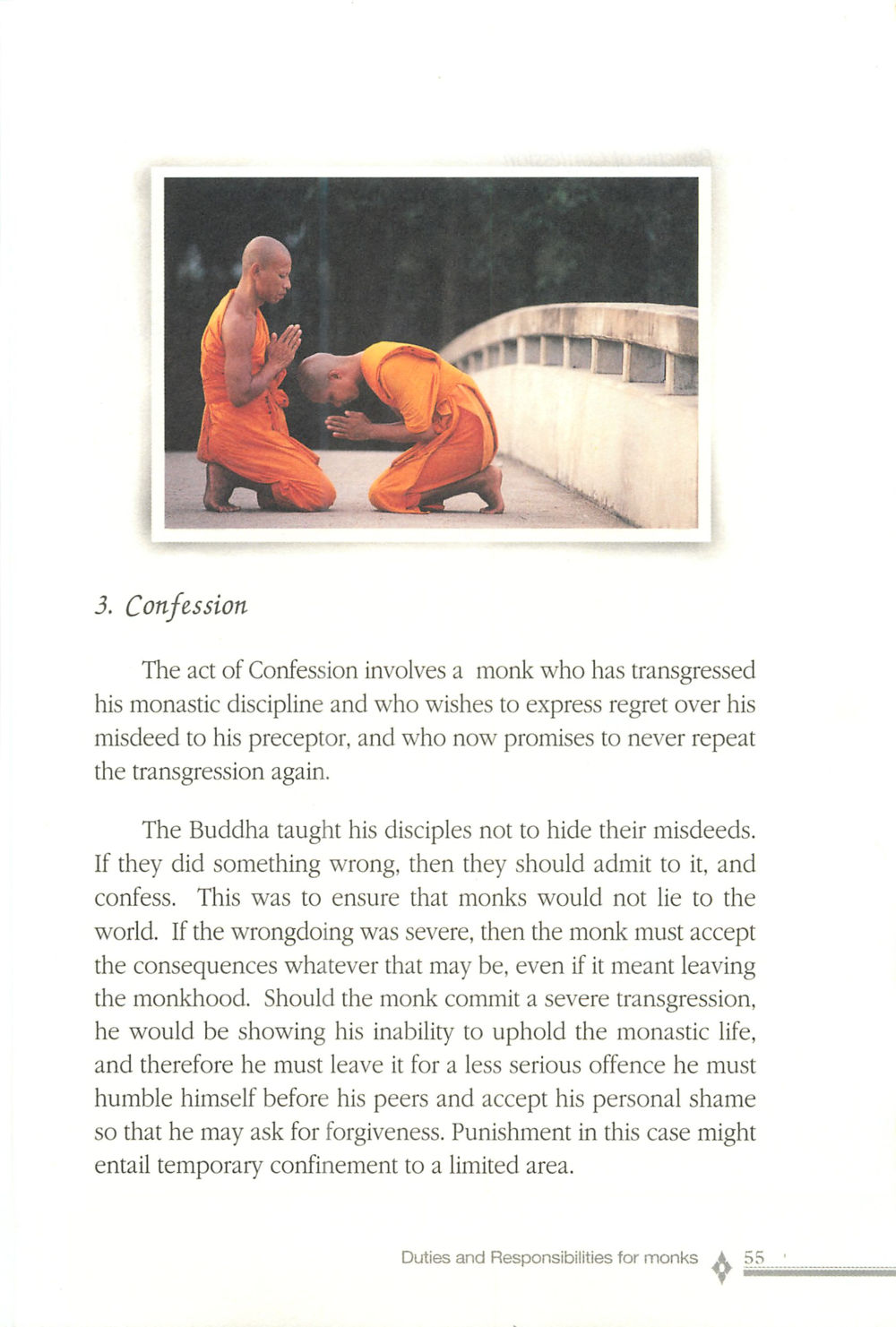Understanding Confession in Monastic Life : หน้า 56/105
The ordination : หน้า 56/105 Explore the significance of confession for monks and the importance of admitting transgressions in Buddhist teachings.
0 ครั้ง

สรุปเนื้อหา
การสารภาพคือการแสดงความเสียใจต่อการกระทำผิดซึ่งเกิดขึ้นในชีวิตของพระสงฆ์ตามวินัยของพวกเขา พระพุทธเจ้าสอนให้พระสงฆ์ไม่ปิดบังความผิด หากทำผิดควรสารภาพเพื่อไม่ให้ต้องหลอกลวงผู้คน หากเป็นการกระทำผิดร้ายแรง พระสงฆ์ต้องยอมรับผลที่ตามมา เช่น อาจต้องออกจากสงฆ์ หากกระทำผิดเล็กน้อยก็ต้องอ่อนน้อมต่อเพื่อนร่วมศาสนาเพื่อขอการให้อภัย การลงโทษอาจรวมถึงการจำกัดพื้นที่ชั่วคราว เพื่อทำการสะสางความผิดและกลับสู่เส้นทางที่ถูกต้อง
หัวข้อประเด็น
-ความสำคัญของการสารภาพ
-บทบาทของพระสงฆ์
-การยอมรับความผิด
-การตั้งใจในการไม่ทำผิดซ้ำ
ข้อความต้นฉบับในหน้า
Confession
The act of Confession involves a monk who has transgressed his monastic discipline and who wishes to express regret over his misdeed to his preceptor, and who now promises to never repeat the transgression again.
The Buddha taught his disciples not to hide their misdeeds. If they did something wrong, then they should admit to it, and confess. This was to ensure that monks would not lie to the world. If the wrongdoing was severe, then the monk must accept the consequences whatever that may be, even if it meant leaving the monkhood. Should the monk commit a severe transgression, he would be showing his inability to uphold the monastic life, and therefore he must leave it for a less serious offence he must humble himself before his peers and accept his personal shame so that he may ask for forgiveness. Punishment in this case might entail temporary confinement to a limited area.
Duties and Responsibilities for monks 55
หน้าหนังสือทั้งหมด
หนังสือที่เกี่ยวข้อง
Load More









































































































